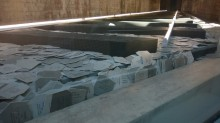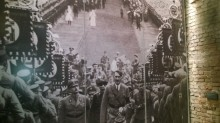NUREMBERG, Germany — I am pleased to announce that I have rediscovered the joy of traveling locally by train.
I also am prepared to declare that Europeans know to run a train system. The Nuremberg network of rail lines is many things: it is quiet, it is environmentally efficient, and it damn sure runs on time.
The trains here run on electricity, which the Germans obtain chiefly through solar, wind and hydropower. They use a bit of fossil fuel. There isn’t a nuclear power plant to be found in Germany, unlike in neighboring France, which relies heavily on nukes to heat homes and keep the lights on.
I have been taking the train daily from the village of Weitersdorf, where my friends Martin and Alena live with their three children. I ride the train into town, usually with Martin as he goes to work each day. Me? I am free to roam about the city of 500,000 residents on my own.
It’s a 20-minute walk from the house to the station in Rosstal. We quick-step in time for the train to take us downtown to the massive central station, from which trains fan out across Bavaria … and beyond.
My bride and I got acquainted with the train system on our first visit to Nuremberg in 2016. On that visit we took a train to Amsterdam to see more friends in The Netherlands. That trip, too, was an exercise in cold-steel efficiency. We managed to navigate our way through a train line transfer en route to our German friends’ home.
All of this is my way of hoping that eventually we can develop a train system that is as expansive and efficient as what we have seen in this beautiful region of Germany. Yes, we have Dallas Area Rapid Transit.
But … we hear too often about train lines being “down for repair.”
These folks here know how to keep the trains running on time.

